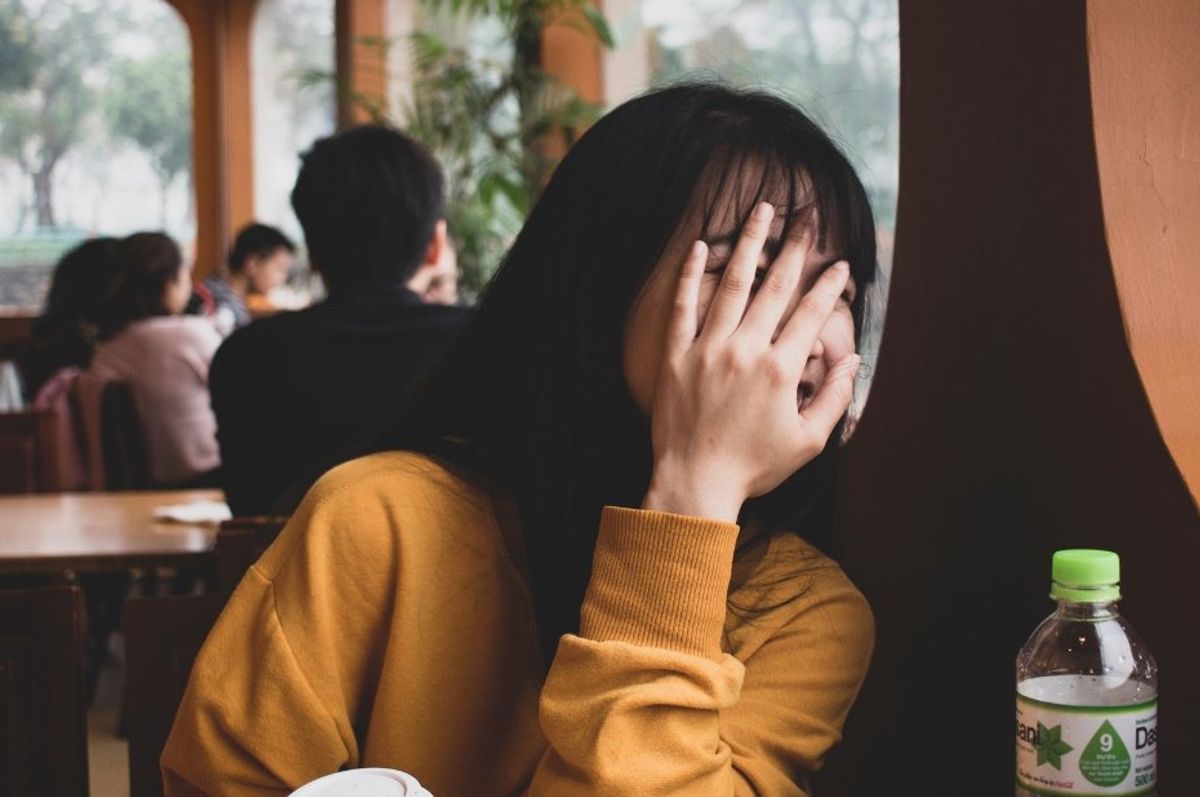Why awkwardness is such a real thing for people everywhere and one big key to overcoming it
This is super helpful info for people who struggle with social anxiety.

In our brains, awkwardness can feel as painful as being bullied.
Some people fear heights or small spaces, some fear spiders or snakes, and some fear illness or death. When taken to an extreme, such fears can form of an anxiety disorder, but they are understandable fears to have because any one of those things could theoretically spell our demise.
But what about fearing something that isn't physically dangerous at all, but rather psychologically uncomfortable, like…awkwardness?
For people with social anxiety, the fear of awkwardness is as real as the fear of death. "I'd rather cross a glass bridge over a 1,000-foot canyon than introduce myself to someone new" is a totally normal thought for a socially anxious person. The silences and pauses that mark most social interactions are magnified to painful degrees and the feelings of self-consciousness most of us experience in those moments are felt in extremes in the mind of a socially anxious person.
No one likes feeling awkward, of course, but why is it even a thing in the first place? What makes some interactions feel so uncomfortable to our brains? And more importantly, how do we overcome the fear of awkwardness, especially those who find themselves completely paralyzed by it?
The YouTube channel VSauce shared some of the science behind awkwardness, what's happening chemically and emotionally when we feel awkward and some of the perspective shifts that can help keep us from fixating on awkward feelings.
First, the video explains that awkwardness is actually a social good because our feelings of self-consciousness prompt us to avoid certain actions in ways that actual laws and formal etiquette don't.
"People who demonstrate self-consciousness when needed are communicating cooperative intentions, which helps them get along well with others," host Michael explains. "It's no coincidence that brains,susceptible to feeling occasional awkwardness, would become so common.They're successful at cooperating,at social life. Feeling awkward shows that you understand and are keen on smooth social exchanges.Now, too much or too little concern for social rules isn't healthy, but researchers found that just the right amount is great. When a person shows remorse or embarrassment or awkward discomfort, when appropriate,others perceive them as being more trustworthy, and their actions as more forgivable."
In other words, having the capacity to feel awkward actually makes us more likeable. So why does it feel so awful?
Our brains actually respond to awkwardness similarly to how they react to pain or name-calling, flowing along the same neural pathways, resulting in similar physical sensations and triggering our fight-or-flight response. (Thanks, evolution!)
But there are ways to tamp down our overreaction to awkward moments, which can be especially helpful for people who struggle with social anxiety. One reason awkwardness sticks with us so much is that we worry too much about what people are thinking about us, and social anxiety magnifies that worry. The more we realize that people aren't thinking about us nearly as much as we think they are, the more we can let awkward moments go.
In fact, there's a word for the realization that we are just extras in other people's stories, and not the main character—sonder. We are only the protagonist in our own lives. Other people are focused on their own lives.
"Acknowledging this makes your awkwardness look small," Michael says, adding, "But it also makes all of you look small. Tiny. A needle in a giant haystack." That's both a positive and a negative, but that perspective can help us in those moments when we're feeling the pain of awkwardness.
Watch:
You can follow VSauce for more insights on the human experience on YouTube here.
- 10 things someone with anxiety wants you to know about dating them. ›
- Gen Z and Millenials struggle with 'menu anxiety.' Here’s what it is and how to beat it. ›
- What a guy with social anxiety wants you to know about inviting him to a party. ›
- 12 real scientific facts that sound completely made up, but aren't - Upworthy ›
- 'Untapped potential' expert shares key to happiness and success - Upworthy ›
- A local barista's innocent name mistake turned into a hilarious mistaken-identity drama - Upworthy ›

